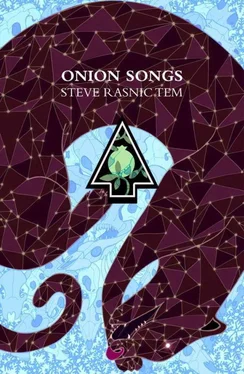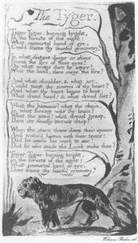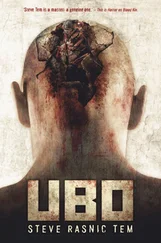15. dreams
When John separated from people he often wrote them a brief letter a week, until they moved or he grew tired of the occasional response. The fact that he lied in his letters may have been a factor. His lies consisted of narrations of events he was afraid might happen or hoped might turn out a different way.
Billie,
My mother is dead. I’m not sure how, but I’ll manage to get through this. Love, John.
An ungenerous observer might have said he secretly hated his mother as he killed her off frequently, in a variety of ways.
Jack,
The house burned down, and with it all my accumulations. More later, John.
16. behaviors
John had long believed that if you wanted to get a feel for the consciousness of a place, the air of ideas, hopes, fears and traumas that gathered there, you need only read a few months’ worth of its daily newspaper, especially the small stories, the crimes, the domestic incidents. “Wife kills husband and dog” “Local funeral home defaced” “Methodist minister and three women missing.” A newspaper was like the diary of a city, the city revealing itself almost unawares. For a time he tried rewriting his own life in terms of local news headlines: “Man breaks up with wife, again” “Man changes jobs for the sixth time in a year” “Man prowls grocery store aisles seeking company.” The attempt quickly grew depressing. He felt like a criminal reading the newspaper for word of his own crimes, following the trail that must inevitably lead to his incarceration.
17. behaviors
John once spent a slow weekend taking close-up photographs of the things of his life, then the following weekend distant shots of his house, his neighborhood, a long shot of his town from the hill on the outskirts. He papered the walls of his bedroom with the photos and felt no compulsion to leave that room for more than the few moments required to raid the refrigerator. Eventually he tore the photographs down, sold the house, and moved to a new town where he again began accumulating photographs.
18. behaviors
Like many people, John supposed, he did not have a particularly discriminating sense of smell. Aromas blended like the ingredients of a porridge, so that he could not distinguish a lover from a dead dog, sugar from decay. This seemed a terrible disadvantage. He’d had a dream in college he was about to kiss his girlfriend—had thought her perfume to be unusually strong that evening—when he found himself kissing her dead lips, crying not in deep emotion but from the smell. The odor of fear, the secret smells of the body, the smell of the air before some great disturbance, all having meaning if you simply knew how to parse them.
Sometimes in his anxiety he would smell his own body seeking signs of illness, but it appeared to smell no better or no worse than any other.
Sometimes the air grew stale from the perfume of too many people, desperately trying too many things, seeking to put together a bouquet, succeeding only in stinking.
19. philosophies
John was always surprised at how difficult it was to know his own mind about things. But how could he, when each part of him, each object in his everyday life, had its own point of view? What the stomach wants is not always what the intellect wants, and truly, the left hand does not always tell the right hand what it is doing. The eyes might dream of blues and yet it is reds and pinks that the fingertips crave. Your life story was a completely different narration depending on which piece of you was listened to. The healthy ones, he thought, were those who quickly achieved some sort of coordinated consensus. The unhealthy ones were constantly at war with themselves, and unable to choose a restaurant for dinner. The brain might be Catholic, the feet agnostic, the fingers Republican, and the ears Democrat. And, perhaps, that was the way it was supposed to be—listen to your voices, for they contain the world.
20. behaviors
It came to John how randomly, and all-too-infrequently, silences occurred in his life. When he made himself too busy with the striving of the now, others’ silences seemed like that awkwardness that happens when the tape runs out or the conversation dries up. But now and again when he remembered that it pays to listen to oneself, he heard himself breathing in the silence, and the unsteady emotion that was that breathing, and the anticipation of new beginnings, and the anxiety that there would be no new beginnings, ever again.
During one such silence he realized he loved the woman who became his wife. During another he decided to change careers. All at random, all unplanned. Some days he waits for the silence, and yet another opportunity to breathe.
21. behaviors
John had discovered One Hundred Twenty-five ways of hiding himself from others. Thirty-eight of these involved various ways of holding his nose. If he felt he had to say something critical to someone he adjusted his glasses. If he had to ask for something he scratched either his left or right eyebrow, depending on how badly he wanted it. If he said hello to someone he had to manage, somehow, to touch one eye. If he had to say goodbye it was both eyes, accompanied by a little dance of the feet. If someone he knew died he’d scratch away at a certain point on his neck all day until it was torn and bloodied. If he lost his hands, he realized, he would be quite unable to venture out in the world. Sometimes when he didn’t know what to do he simply closed his eyes. People could not tell, but there were tears beneath the lids. Sometimes a woman would hold both his hands, and he would close his eyes, and blink, blink again, open his eyes and blush. He liked it most when they grabbed his hands by surprise, when he least expected it. It was a thrill like no other, an ecstasy he could barely tolerate.
22. philosophies
John had long resented the influence the news had on day-to-day life. His father had had the right idea—he never watched it on television, but listened to it on the radio, or read newspapers. Of course, if it was something that had gone on for days, and everybody talked about it, he might check in with it a few minutes one night just to see what was going on. That’s how the old man knew about World War II.
John knew all too well how learning the daily news could ruin a day or week, a lifetime, change the way you looked at the world and how you saw yourself in it, what you strived to be. Better to let the decline of civilization happen without you, better to let destruction occur without warning, better to let unhappiness be a surprise and not what happens to everybody, every day.
23. dreams
People lie about the strangest things. What they did last evening, the importance of their jobs, even what they had for lunch that day. So much of their own memory, in fact, has been filled with self-manufactured moments.
It is not because I want to deceive people, John thought, having caught himself in the fourth deception of the day, but because this isn’t the life I wish to live.
In the long night before his next day he lunges recklessly in pursuit of the events that will define him: things that never happened, but should have.
24. behaviors
John wondered when food had become such a toy, a miniature landscape for dolls, a diorama concerning the landscapes of other countries. Meals at the best restaurants felt more like museum exhibits. Anyone who could afford a lunch might travel to a place where he was guaranteed misunderstanding. A fork, a knife, a spoon was a ticket out of the head and into a dream.
If he could have afforded it every day, he might have eaten the world. As it was he had a taste enough to staunch a craving through sleep and into another day.
Читать дальше












